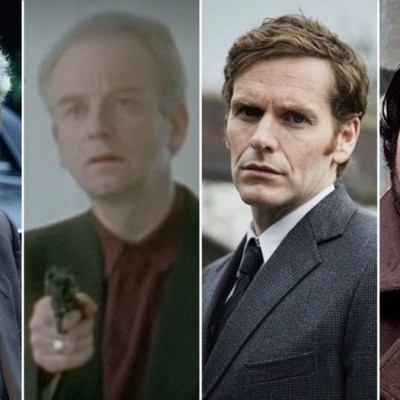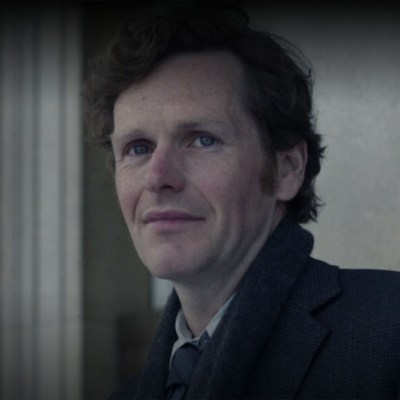Endeavour: Saluting the Wit and Constancy of Dr Max DeBryn
Pathologist Dr Max DeBryn is a fan-favourite character in the world of Morse, and here’s why.
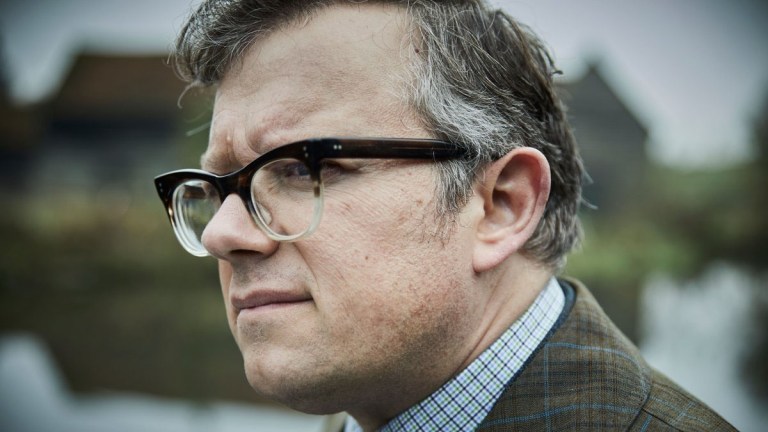
A rummage. A rootle. A grub about. A fillet. The hors d’oeuvres. Getting him unzipped… Coming from anybody else, the irreverence with which Endeavour’s Dr Max DeBryn describes performing post-mortems would suggest callousness. From DeBryn though, it’s just DeBryn – playful, teasingly provocative and clever. The man’s a master of words as well as the scalpel. He may delight in making his squeamish colleague Morse green around the gills with descriptions of corpses being “as ripe and runny as a rancid Roquefort”, but underneath the mischief sits unarguable decency. DeBryn’s language is light-hearted, but his heart – unlike those of the patients on his slab – is in good working order.
That much is clear from brief earnest moments DeBryn lets escape his dry-witted façade. He often remarks with compassion on the thankful small mercies in his clients’ violent deaths. In Endeavour series four episode ‘Game’, he instructs the uniforms carrying away a murder victim, “Gently, if you would gentlemen, she’s been through quite enough.” In series six episode ‘Confection’, he’s gentle and kind when a distraught ACC Bright visits him at his club for medical advice on Mrs Bright’s cancer diagnosis. When a child is shot by a stray bullet in Series 5’s ‘Quartet’, DeBryn drops his coolness to do everything to save him – and succeeds. When Morse congratulates him, the praise is shrugged off with characteristic detachment: “Makes a change to work on a live patient, I suppose, but I wouldn’t want to make a habit of it.”
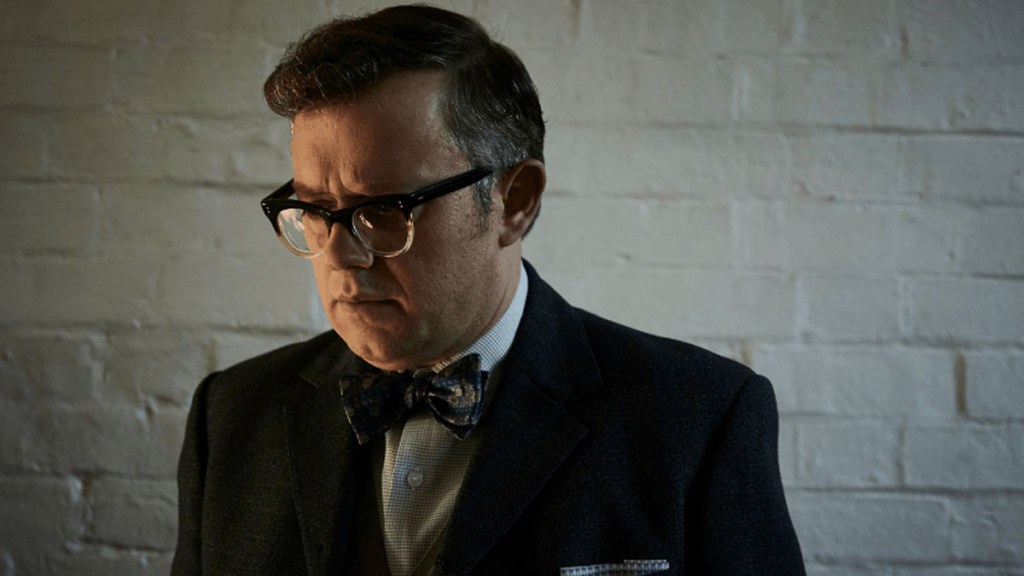
Detachment, one feels, is the key to understanding Dr DeBryn’s offhand manner. Morse may see more than his fair share of murder victims in his line of work, but he has the privilege of looking away at some point. Not Dr Debryn. It’s his job to look more closely at things from which the rest of us would avert our eyes. As a Home Office pathologist, the constant parade of victims – men, women and children – across his surgical table would take too heavy an emotional toll without a distancing strategy. That surely explains DeBryn’s arch humour and lurid references to having someone’s “tripes in a tub”.
DeBryn explains it best when he tells Morse in series five’s ‘Cartouche’ that’s he’s no fan of scary films, “Cruelty, torture and Kensington gore? For some of us, it’s horror season all year round.” When Morse compliments his charming country home in series six’s ‘Pylon’, DeBryn tells him, “Something has to be lovely, doesn’t it?” In DeBryn’s day job, loveliness is in short supply. Between his seed cake and tea roses, it’s comforting to think the character has built himself a refuge of sorts.
Loveliness may be absent from his work, but loneliness DeBryn seems well acquainted with in Endeavour. There’s a melancholy to James Bradshaw’s earlier incarnation of the character that’s less detectable in Peter Woodthorpe’s more cantankerous bon viveur in Inspector Morse. While both are exacting professionals who give not an inch to lesser men (“I couldn’t possibly say,” is Woodthorpe’s character’s catchphrase when asked to use guesswork instead of science. Like a fairy tale wizard, he demands to be asked the right question – a not unintelligent one – in the right format before he’ll deign to respond) more space is allowed for vulnerability in Bradshaw’s performance. There’s more space in general, with Bradshaw appearing across the prequel’s 33 films, instead of only the seven appearances Woodthorpe made in Inspector Morse before ill health forced his retirement.
That’s one joy of a prequel like Endeavour, to push deeper under the skin of characters we know and love, to peel it back and probe the wounds beneath. Actor James Bradshaw, writer Russell Lewis, and Endeavour’s many directors have created a Max DeBryn whose curtness and dry wit masks a tugging sense of loss. When Morse asks DeBryn what he makes of love in series four’s ‘Game’, he bats the enquiry away before quoting the line, “And one was fond of me and all are slain.” Morse, recognising the work of his favourite poet A.E. Housman, completes the verse. “Ask me no more, for fear I should reply.” In that same episode, DeBryn remarks, “Love and fishing. Sooner or later it all comes down to the same thing: the one that got away.” There was once somebody fond of DeBryn, it’s hinted, but whether slain, or perhaps unable to love him at a time when not all love was legally accepted, they got away.
Loneliness, or at least the pall of it cast over the prequel by our knowledge that Morse remains a bachelor, is one of many things shared by DeBryn and Endeavour. They’re fellow outsiders whose friendship is one of our greatest assurances of DeBryn’s decency. Amused as he is by Morse having no stomach for blood, DeBryn recognises a kinship there. Educated, cultured, with an appreciation of the finer things – food for gourmand DeBryn, opera for Morse, poetry and booze for them both – they’re out of place among the Jim Stranges of Thames Valley Police. (The lack of poetic soul in DS Strange puts him on the receiving end of DeBryn’s acid tongue more than once. When Strange remarks in series six’ ‘Confection’ that a victim “choked on his own puke”, DeBryn wryly comments, “Been at the Keats again, Sergeant?”)
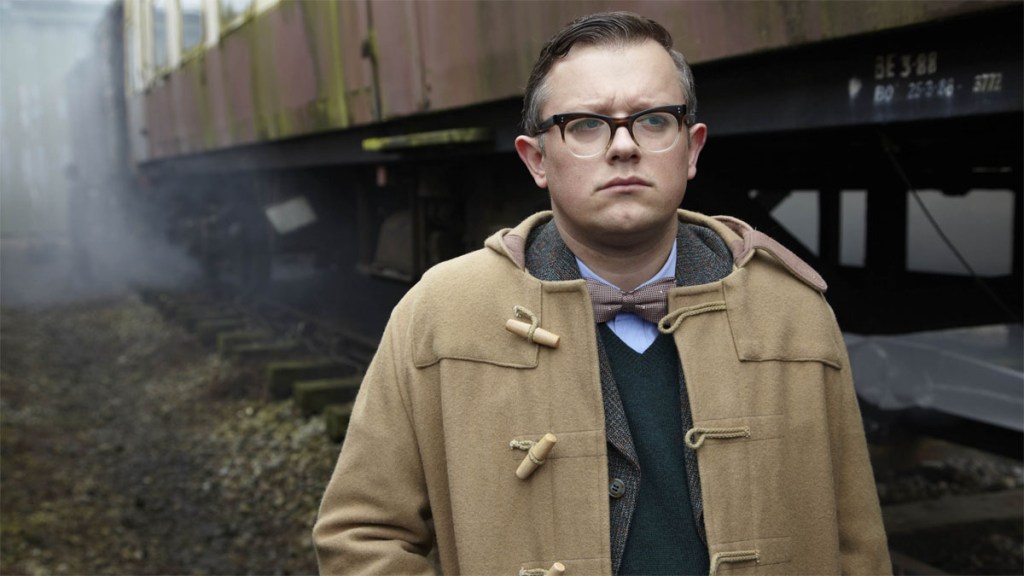
Though DeBryn and Morse’s fondness for each other is more likely to express itself in gentle ribbing over a gin and Campari in Inspector Morse, there’s a smidge more tenderness and sincerity between them in Endeavour. It’s easy to feel that they care about each other, nowhere seen better than in DeBryn’s performing a bit of his finest broderie anglaise on Morse’s knifewound, or even in his explosive reaction to Morse and Thursday having a stand-up fight over the body of a young victim in series seven. Not only are DeBryn’s professional standards insulted by their behaviour, but he appears incensed by how destructive Morse is being. The same could be said for his series eight comment – about a victim but indirectly about Morse’s drink problem – that alcohol is a notorious depressant and “we rarely make wise choices when inebriated.” Dr DeBryn, no stranger to drink, must also be talking from personal experience.
A sharp wit, a dapper dresser, a good man, and an elegant speaker with more inventive euphemisms for death than Monty Python’s Dead Parrot sketch, it’s no wonder Dr Max DeBryn has become a fan-favourite character in the world of Morse. He may not be one of the leads, but even in the briefest of scenes, he never fails to leave an impression. In Colin Dexter’s novels, but particularly as played by James Bradshaw and Peter Woodthorpe, he’s somebody we’d all stand a drink for at The White Horse. So here’s to you, Max. Shall we say two o’ clock?
Endeavour series 8 is available to stream now on ITV Hub and Britbox.

